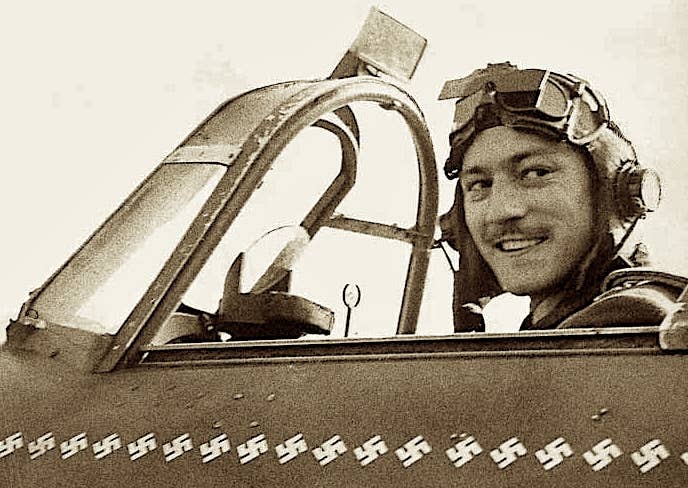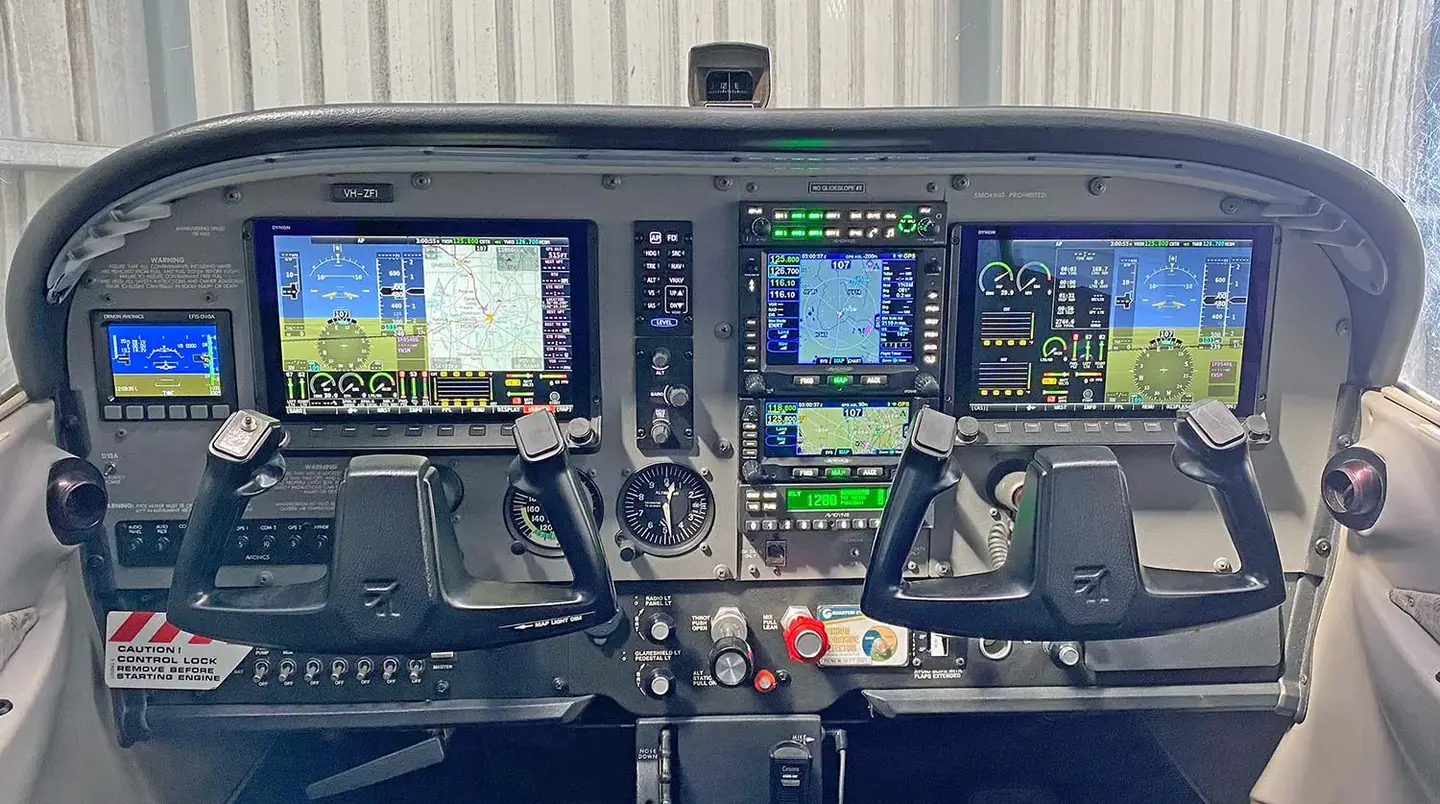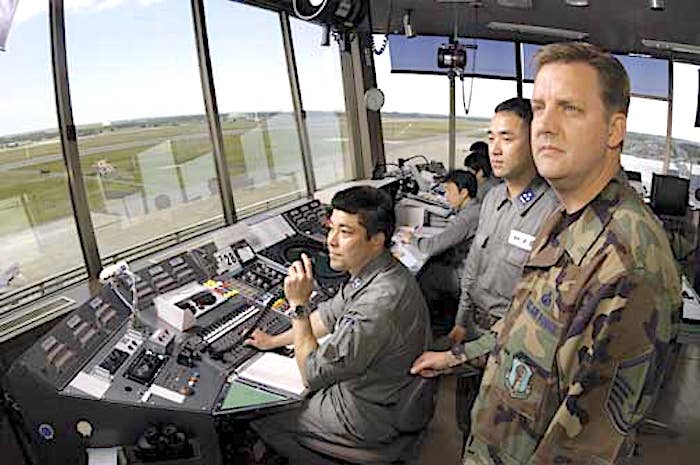TSA Takes Over
If you don’t want the entire world to have a look at it, don’t try to carry it aboard an airliner. But has the new world of the TSA accomplished anything? After a half-dozen intimate searches, AVweb’s Paul Bertorelli says maybe.
I've laid my soul bare on a couple of occasions in my life but this is getting ridiculous. There, spread before all on a cheap folding table at LaGuardia Airport, were the contents of my shaving kit, sans the nail clipper, which I'd presciently left at home.
"What's this?" asked the white-shirted, freshly bepatched TSA screener, brandishing a small metal cylinder from the assorted implements of my personal ablution on display. Her look implied that she was acting on "credible" intelligence and that she expected me to crack under the pressure, whence I'd be rerouted from Tampa on JetBlue to Guatanamo Bay on a Navy trash hauler.
"That," I hissed through a thin-lipped smile, as though I'm accustomed to the modern equivalent of what we used to call a short arms inspection in the military, "is dental floss." She seemed profoundly disappointed.
Welcome to the brave new and character-building world of domestic airline travel. This is not an activity for the feeble or shy. Got hemorrhoids? The world will know. A Mickey Mouse toothbrush? Hope you don't mind the snickering. You might consider chipping off the larger encrustations on your razor and buy your Metamucil at the destination. Other than that, let me tell ya, the damn thing is a lark.
Because I do a lot of airplane ferrying around the country, I've sampled the TSA's work more than the average traveler. One-way tickets seem to magically open that door into the "enhanced security" line. It rarely fails. But I'm not exactly complaining here.
From my credit-where-credit-is-due file comes this observation: The newly created Transportation Security Administration deserves a tip of the hat. As we report in today's news dispatches, over the course of eight months, it has managed to recruit, train and deploy screeners at 424 of the nation's commercial airports. Personally, I thought it would take five years, if it ever got done at all.
But there they are, white shirts, blue pants, beepers and all; a veritable army of people lovingly trained to poke and prod their way through your underwear and socks. They'll even lay hands on your occupied socks, if you're one of the select few deemed likely to have knitted a little Semtex into your soles.
Cutting to the chase, do we have better airline security than we did before 9/11? The cynical wisdom says no; it's all just window dressing. But I disagree. The net is now cast wider, the filter screen is finer. It's harder for a passenger to get on an airplane with a weapon, although not much harder. The system is more alert than it was 18 months ago.
But there are still enormous gaps in security, chiefly on the airside where aircraft aren't watched carefully and unscreened people still have access to them. It may take another disaster before this is taken seriously.
That said, I'm not convinced that TSA screening delivers value entirely commensurate with the effort and cost. But on a passenger-to-passenger basis, it is better than what went before it. TSA screeners are more professional, appear to be better trained, and I have found them courteous, even friendly, to a fault. They almost always speak English. (Even Floss Lady was, after a fashion, friendly.)
They are a vast improvement over the contract morons who used to man the ramparts before. Hired at minimum wages, many contract screeners were surly, bored and seemingly over-qualified for a job flipping burgers. Good riddance to them all.
I'll call that progress, however minor. Yet the system is still broken and the TSA has a long way to go to improve it. First, the notion of random detailed searches is deeply flawed. It's ludicrous to sidetrack blue-haired grandmothers for cavity searches while most of the remainder of the airplane boards unhindered. All this will do, ultimately, is drive people away from the airlines and into their cars. Given the current economic climate, the airlines won't be able to sustain this degree of harassment for long. They will lose passengers in droves.
If it were my show, I'd propose several solutions. First would be one which Americans have little stomach for: profiling based on instinct and intelligence. Experienced cops get good at picking the perp and if the TSA develops such expertise — and why shouldn't it? — it could back off the rate of random searching and increase the rate of searches based on profiling.
Does that mean that Hani from Riyadh or Abduhl from Aden always get the third degree while Mildred from Minneapolis sails aboard unhindered? Yeah, that's what it means. Call it wising up to the ways of world. Either that or sacrifice what's left of the airline industry on the altar of civil liberties.
Next, deploy the simplest technology first, the sophisticated technology when it's ready. Bomb-sniffing dogs are ready and able now and are a proven adjunct to security. We should put an enormous push on fielding more dogs for random passenger search. Explosive detection equipment seems barely practical for large-volume use. It may be wiser to let it mature rather than deploy it too soon and clog up the works more fully than they already are.
Last, the aircraft crews need a break. While you and I are subjected to TSA scrutiny only occasionally, it's an everyday hassle for airline crews on the way to their workplaces. The TSA and the industry need to develop some reliable identification/security check method that can allow crews to bypass the same harassment passengers have to endure. Enough is enough. While it's true that any identification system can be counterfeited, it's also true that the risk of this happening with a well-designed system is low enough to tolerate.
The TSA is right to expect some patience and tolerance from passengers. It's unrealistic to assume that, as airline passengers, we won't occasionally be sidetracked for a pat down. That's life in the modern world and we might as well get used it.
Although the TSA is off to a rapid start — and one that's not bad, in my view — it now needs to back and fill the training of its screeners, push hard for profiling and get much smarter about the way it uses its resources to vet a load of passengers.
It's not a question of whether it can be done. It will have to be done if the airline industry and travel in general are to ever return to the kind of vibrancy they enjoyed before 9/11.






